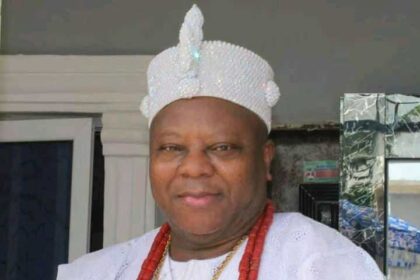The 36 state governors have decided to turn to the World Bank as one of the ways of surviving the current economic downturn in the country, which has made it difficult for many of them to pay workers’ salaries.
They are putting machinery in place to access a $3.25bn portfolio currently lying idle in the bank.
The Chairman, Nigeria Governors’ Forum, Alhaji Abdulaziz Yari; and Kaduna State Governor, Nasir el-Rufai, briefed State House correspondents about the decision to approach the World Bank at the end of a meeting of the forum held inside the Presidential Villa, Abuja on Thursday.
The meeting, which started at about 8.45pm on Wednesday, ended in the early hours of Thursday.
Yari, who is the governor of Zamfara State, said he and his colleagues decided to invite the Country Director of the World Bank, Rachid Benmessaoud, who briefed them on the $3.25bn fund available in the bank, which largely belongs to the state governments but had not been accessed.
He said because of the cumbersome procedure for accessing the fund, most of the governors did not know that such existed in the bank.
Yari explained that it was el-Rufai’s initiative that officials of the bank should come and make the presentation so that the governors could be properly educated.
He added that the states had been defaulting in the payment of their own part of the World Bank fund because of the economic downturn afflicting the country.
He, however, said the bank officials had agreed to revisit the issue.
The governor said, “They came to educate the governors so that they would know that this money is there. This could help us in the kind of difficult situation we are in so that we can move forward in terms of infrastructure development and other matters in our respective states.
“We had a presentation from the World Bank officials and we agreed on the terms. The governors made their own contributions, especially the issue of counterpart funding, which the bank accepted they are going to look into.”
Yari added, “Also, they agreed that they would give us the details of how much each state could access. As of now, they are ready to facilitate a kind of workshop for the state governors, the commissioners of Finance and other officials for us to know how best to move and access these funds for the betterment of our respective states.
“We discussed the issue of counterpart funding. It is more difficult for us to fulfil our own part, because we are struggling to see how we can pay salaries. That is the most difficult aspect of it and they promised that they would look into it; and immediately that is done, the states will move fast to ensure we access it.”
El-Rufai admitted that all the state governments were broke, adding that this was the reason why they must work hard to access the money.
He expressed the belief that the idle money was capable of turning around the fortunes of the states.
El-Rufai explained, “The World Bank portfolio for the states for this year is $4.25bn and out of that, $3.25bn is lying there undisbursed, which means the states are not meeting their conditions or not moving fast enough to draw this $3.25bn.
“You know $3.25bn can do a lot to improve the lives and livelihood of our citizens in the states, and the World Bank has expressed its flexibility to look into the challenges we are facing as well as the procedure to ease accessing this money. The World Bank wants us to withdraw the money as quickly as possible so that our citizens will get the benefits from health to education, agriculture and the revival of livestock and water supply.
“These are the areas for which most of these funds are dedicated and we all need the money, because we are all broke. So, we are going to work very hard to try to get the money in trust.”



